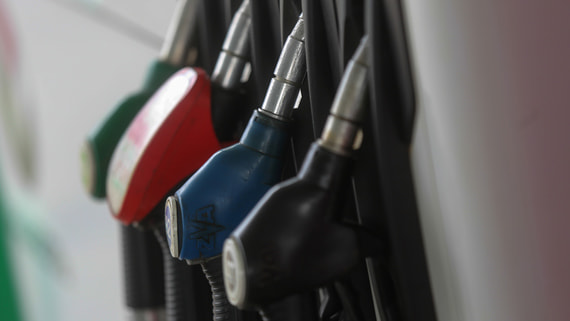Siberia will slow down the rise in fuel prices with subsidies for gas stations
[ad_1]

The government of Tuva will subsidize gas station owners in the republic up to half of their markup on petroleum products in order to reduce fuel prices for the population. The head of the republic, Vladislav Khovalyg, announced this on his page on the VKontakte social network. According to the Tuvan FAS department, from August 31 to September 7, the cost of AI-95 at gas stations in the region increased by 1.07 rubles. up to 61.31 rub./l.
“I decided to subsidize part of the markup that local entrepreneurs make on the cost of fuel from the republican budget. We are forced to take these measures because we cannot influence the wholesale market. This solution will remove some of the burden from the population. On my instructions, the regional Ministry of Fuel and Energy is developing a resolution,” Khovalyg wrote.
According to him, the regional authorities are offering the owners of Tuvan gas stations to enter into an agreement with the government to provide subsidies. The Cabinet of Ministers will compensate gas stations for half of the “objective markup” on fuel so that residents can buy it at a reduced price. The authorities are also helping gas station owners solve problems with fuel shipments on the wholesale market. The regional government also intends to help find acceptable logistics schemes and conclude new contracts for the supply of fuel.
On September 12, Khovalyg reported that the tariff service of the Federal Antimonopoly Service of Tuva did not reveal any violations or collusion in the fuel market. The rise in prices in the republic is caused by an increase in the cost of fuel on the wholesale market, he noted. An analysis by the regional Ministry of Fuel and Energy showed that in most cases, entrepreneurs did not manage to order petroleum products in a timely manner.
Fuel supplies to the domestic market and its prices have been discussed by the authorities since the beginning of summer. The Ministry of Energy, the Federal Antimonopoly Service and Deputy Prime Minister Alexander Novak, who oversees the fuel and energy complex, discussed several options for combating “gray” fuel exports and settled on approving a list of exporters. According to First Deputy Minister of Energy Pavel Sorokin, it will include only oil refineries. According to Interfax sources, the Ministry of Finance and the Ministry of Energy are also considering introducing a protective duty on the export of petroleum products of up to $250/t.
It has not yet been possible to solve the problem of rising wholesale prices: quotes for gasoline and diesel fuel on the St. Petersburg International Trading Exchange regularly update historical highs. On September 15, AI-92 was traded on the stock exchange at 70,446 rubles/t, AI-95 at 76,403 rubles/t, and diesel fuel at 73,758 rubles.
The rise in prices in wholesale was also reflected in retail: in August, the cost of gasoline at filling stations in Russia on average increased by 7.4% compared to the level at the beginning of the year, with inflation at 3.7%.
The Ministry of Energy of Crimea reported about problems with the supply of fuel and its high price (Vedomosti wrote about this on September 12). According to the regional ministry, the delivery time for fuel to the region has increased to 45-58 days, and volumes have sharply decreased. The next day, the press service of the Federal Ministry of Energy stated that fuel supplies to the region had returned to normal. Gasoline reserves in the region have been created for 10-12 days, and diesel – for five.
Vedomosti sent requests to the Federal Antimonopoly Service, the Ministry of Energy, the governments of other Russian regions and the Independent Fuel Union (which unites gas stations that do not belong to large oil companies).
The fuel market in Tuva operates mainly from independent chains of gas stations that are forced to buy petroleum products on the wholesale market, so fuel prices in the region are really high, explains Dmitry Gusev, deputy chairman of the board of the Reliable Partner association. In his opinion, subsidizing the margins of gas station owners to reduce prices is a logical measure, but it is not yet clear from which budget item such compensation will be paid. First, such a decision must be agreed upon with the Russian Ministry of Finance, Gusev believes, since the republic’s budget has already been agreed upon and regional authorities cannot change it independently.
Leading analyst of the National Energy Security Foundation Igor Yushkov adds that problems with fuel are now observed in many Russian regions. The Far East also traditionally lacks fuel, the expert notes. To solve the problem with fuel in the Far East, according to Yushkov, it is advisable to redirect its supplies from export to the domestic market, since the capacity of local refineries is sufficient to supply the region.
In some Russian regions, oil products themselves are available, but their cost has increased significantly, the expert adds. President of the Russian Grain Union Arkady Zlochevsky also emphasizes that, for example, in a number of agricultural regions there is fuel, but its cost has increased significantly during the harvesting campaign and sowing of winter crops, which negatively affects agricultural producers. Nevertheless, farmers, despite rising prices, will harvest the crops and try to sow the fields with winter crops to the maximum, Zlochevsky is sure.
[ad_2]
Source link





